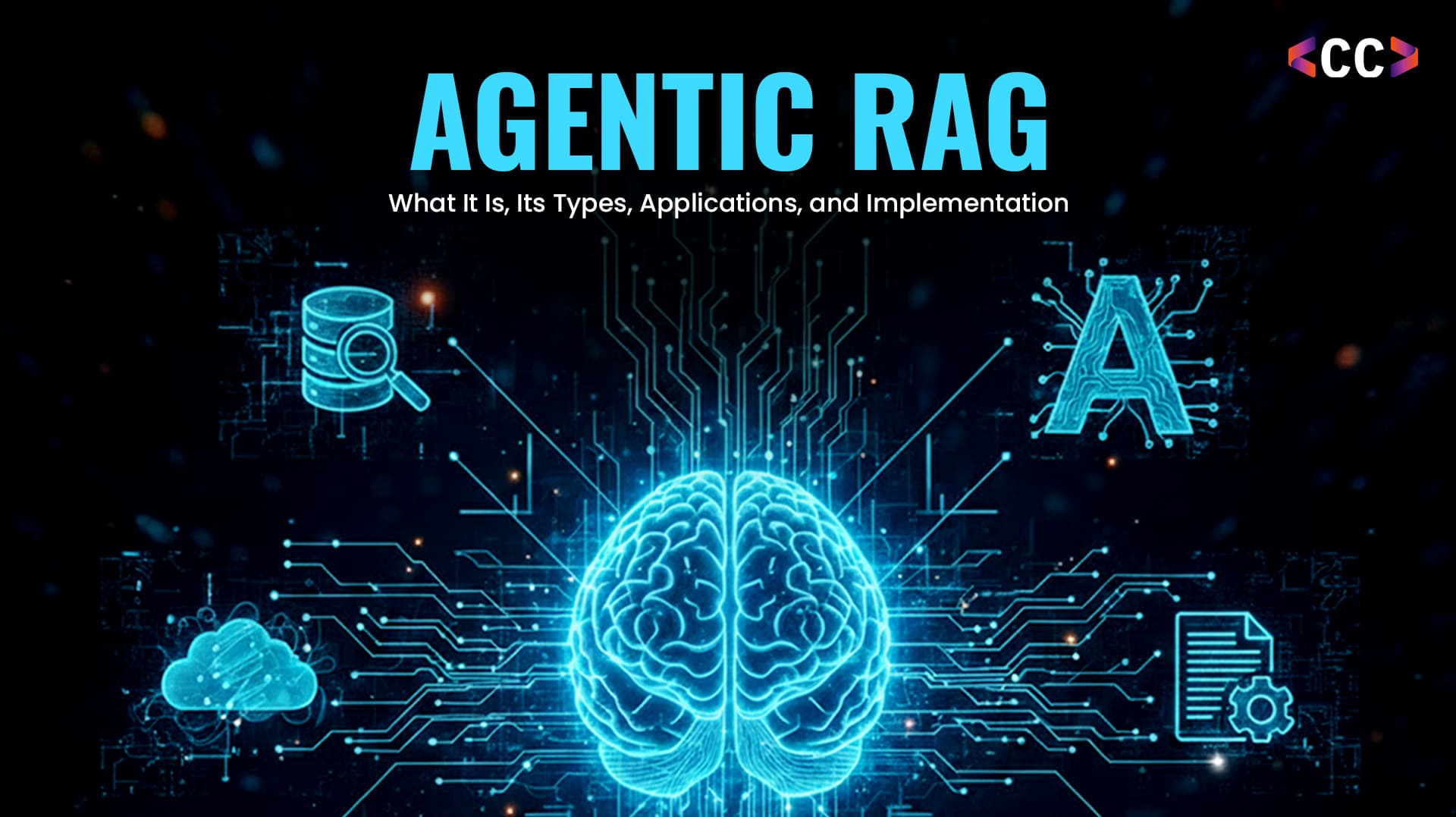Blockchain
3 months ago
Agentic RAG: What It Is, Its Types, Applications, and Implementation
Understanding Agentic Retrieval-Augmented Generation (RAG)
Agentic RAG is an advanced AI framework that combines Retrieval-Augmented Generation with autonomous AI agents to greatly enhance the capabilities of language models. While traditional RAG connects large language models (LLMs) to external knowledge bases to retrieve relevant information during query time, agentic RAG adds a sophisticated layer of autonomy. This allows AI agents to dynamically decide when, what, and how to retrieve data, perform multi-step reasoning, evaluate retrieved information, and iteratively improve output through feedback loops.
How Agentic RAG Works
An agentic RAG system consists of multiple AI agents with specialized roles collaborating to achieve complex goals. These agents autonomously plan steps such as targeted information retrieval from vector search engines, web APIs, or databases, evaluate the relevance and correctness of data, and refine queries as needed. This process significantly reduces errors and hallucinations common in basic RAG systems, yielding more accurate and contextually relevant answers.
Types of Agentic RAG Architectures
- Single-Agent Architectures: One AI agent handles the entire process of retrieval and generation, suitable for simpler tasks.
- Multi-Agent Systems: Multiple agents with distinct tasks coordinate to handle complex information synthesis and decision-making.
- Hybrid Systems: Combine autonomous agents with rule-based components to leverage strengths of both approaches.
Applications of Agentic RAG
Agentic RAG finds application in various domains requiring dynamic knowledge retrieval and reasoning:
- Healthcare: Facilitates up-to-date clinical decision support by continuously integrating new medical research.
- Finance: Enhances real-time risk evaluation by accessing diverse financial data sources on demand.
- Legal and Compliance: Automates review and verification of complex legal documents with self-correcting query methods.
- Customer Support: Powers intelligent helpdesk systems capable of autonomously fetching information from multiple internal and external databases.
Implementation Insights
Implementing agentic RAG involves selecting a robust core LLM (e.g., GPT-4, Claude), integrating advanced retriever modules (vector-based and keyword-based), and designing agent coordinator modules capable of adaptive workflow planning. Efficient indexing strategies, multimodal data support, and comprehensive quality control mechanisms are critical to maintain accuracy and system responsiveness.
Benefits and Challenges
Agentic RAG scales efficiently due to its modular architecture and enhances user experience by providing personalized, timely, and grounded responses. However, it demands significant engineering effort, computational resources, and careful governance to address ethical considerations and biases inherent to autonomous AI decision-making.
Conclusion
Agentic RAG represents a paradigm shift in AI-driven information retrieval, combining autonomous reasoning with dynamic data access to solve complex problems. Businesses looking to leverage cutting-edge AI technologies can benefit from collaboration with specialized AI development firms. ChainCode Consulting LLP offers expertise in deploying secure and scalable agentic RAG solutions, helping organizations unlock advanced AI capabilities while maintaining trust and compliance.

